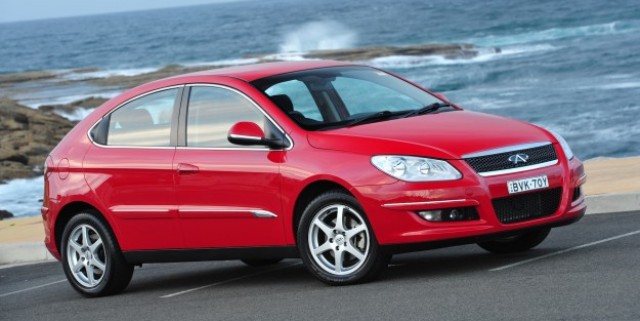
Performance, Ride & Handling 3 Comfort & Interior 2.5 Quality & Design 1 Value & Features 3.5 Green 3.5
It would be easy to take cheap pot shots at the Chery J3, one of the most recent Chinese-made vehicles to enter the Australian market.
It may be an understatement to say Chinese brands are continuing to find their way on the quality and safety front.
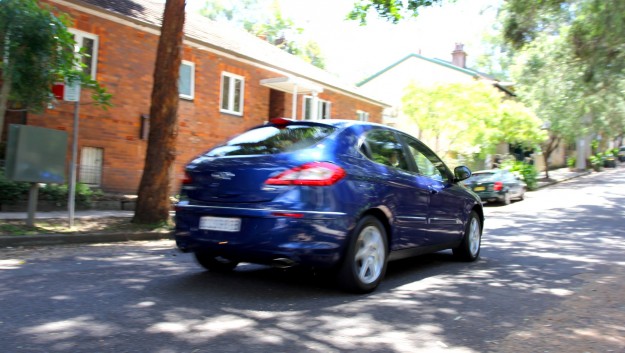
But while it would be a gross exaggeration to suggest this Corolla-sized hatchback signals the start of a four-wheeled ‘invasion’ of top-notch models from the world’s most populous nation, the Chery J3 is a landmark car, a learning curve, and also a surprise.
The J3’s external dimensions measure up slightly beyond that of the 11th-generation Toyota Corolla that recently launched at $19,990 plus on road costs, or about $23,000 driveaway.
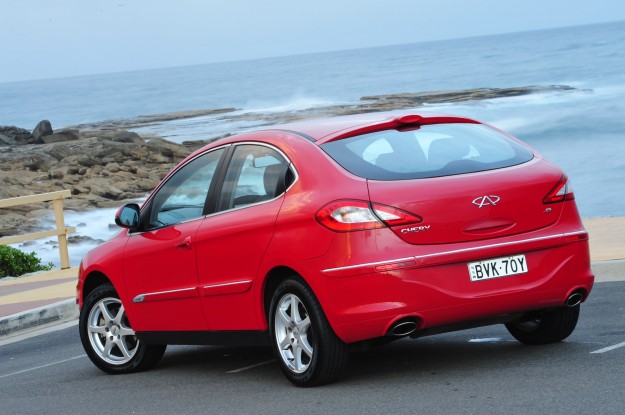
It isn’t as well packaged as the ‘big T’ product, but the Chery J3 costs $12,990 driveaway – or about 33 per cent less. That’s also around the same price as the significantly smaller Suzuki Alto, Mitsubishi Mirage, Nissan Micra and Holden Barina Spark.
For that sub-light price the Australian importer of Chery products, Ateco Automotive, says it has ticked every box available to bring a single-specification, regular-small-sized J3 to our market.
Electronic stability control (already mandatory in Victoria) is promised next year, but standard now are power steering and windows, remote central locking with alarm, trip computer, rear parking sensors, a CD player with USB connectivity, semi-automatic air conditioning, auto lights and wipers, 16-inch alloy wheels, foglights, ‘leather’ trim, six airbags, rear map lights and an illuminated passenger vanity mirror.
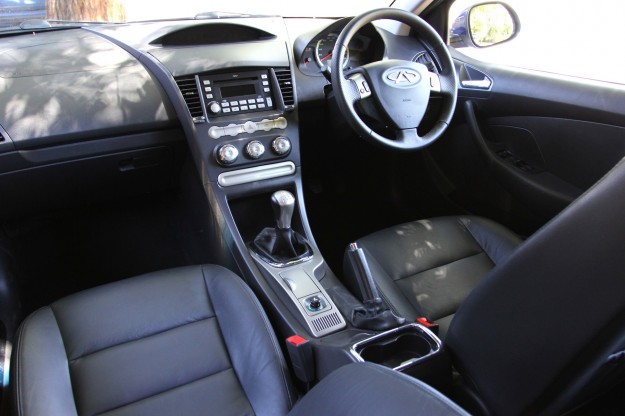
First impressions are not positive, however. Despite the equipment, the Chery J3 has poor fit and finish. The gap between the headlights and front bumper is large, yet uneven, and the paint appears thin.
Expectedly for the price, the dashboard plastics are hard and the surfacing a mish-mash of texures. But the way the panels join together is merely approximate. The storage bins have uneven joins, the lids are flimsy, and every control rotates with either a stickiness or looseness, depending on which one is being turned. The seats feel overstuffed, the stereo unit looks wrenched from the 1990s, and rear headroom is limited.
Look closer and there are promising signs, however. The roof grab handles are damped, flicking back with a soft-close mechanism, and the A-pillars appear thick and therefore at least appear strong (althought crash test results aren’t yet available).
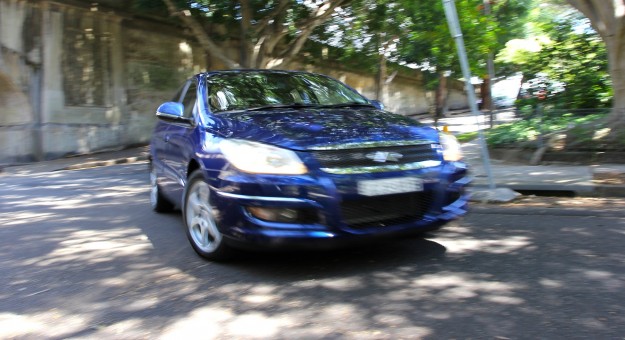
The boot is large – although Chery doesn’t quote volume – and a full-size alloy spare wheel resides under a nicely finished carpet. The boot gets a small light, as do the front doors, the passenger vanity mirror, and the roof above the back seat.
On the 30-degree test day, the air-conditioning worked with unfailing force, even with the engine working hard.
A genuine sense of solidity elevates the Chery J3 beyond some members of the sub-light class, such as the Holden Barina Spark. The Chery isn’t noisy or tinny, and its suspension provides a greater level of compliance around town. The 205mm-wide, 16-inch Maxxis tyres skim over small irregularities in road surfacing, and only larger potholes make their presence felt.
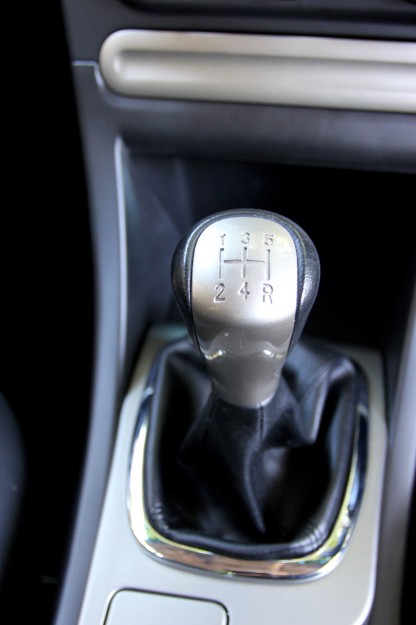
The 1.6-litre four-cylinder engine, borrowed from Mitsubishi, makes decent numbers – 87kW of power at 6150rpm, and 147Nm of torque at 4300rpm. It’s an old workhorse, this engine, feeling more like a diesel in the way it provides a bit of oomph right down low in the rev range and is strained through the middle band of the tachometer. Unlike an oiler, it at least delivers some degree of outright urge towards its 6500rpm cut-out.
Most modern four-cylinders have valve actuators that alter their phasing to – literally – ‘lift’ the performance of a regular four cylinder through the middle part of the rev band. But the Chery is cardboard-flat through its middle rev range, and its slow off-the-mark response is below average even by the standards of the sub-light-car segment.
At least the five-speed manual, the only gearbox available, is generally positive in its shifts, with the rubbery, stiff and long-throw action not inhibiting the overall experience. Even the pedals are well spaced, and the brakes strong.
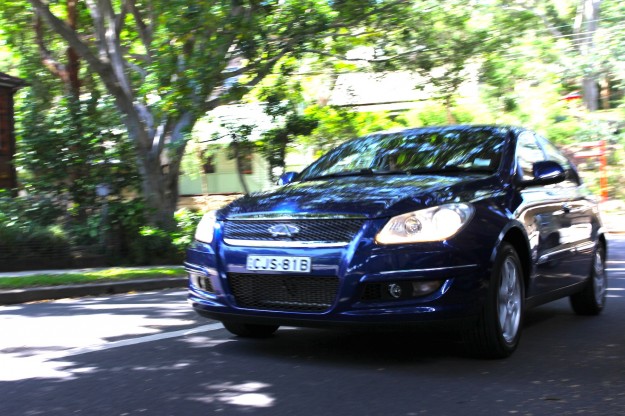
The whole powertrain isn’t helped by a 1350kg kerb weight, though, which makes the Chery J3 by far the heaviest car in its class. The Chery J3 will pull fifth gear at 60km/h revving at 1900rpm, which makes it more tractable and less stressed than a 1.8-litre Hyundai i30 at low revs, but it’s also by far the thirstiest car in the class. Although rated at 8.9L/100km combined officially, we saw 12.2L/100km on test.
Perhaps most surprisingly, the Chery J3 is a decent car to hustle in the bends. There are a few asterisks that follow that statement – like the fact the Chery lacks any dynamic polish or sophistication. But it does the basics surprisingly well.
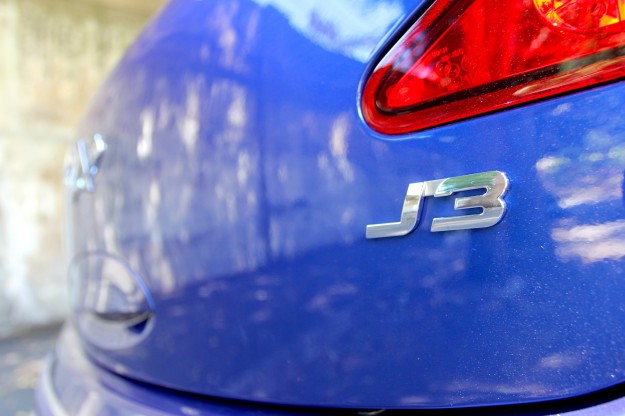
The steering is light yet accurate; not particularly sharp but at least pleasingly consistent. The body sits reasonably flat in corners, particularly given the good around-town ride comfort delivered in some rivals at the expense of handling.
Even control over larger bumps is more than acceptable, although mid-corner bumps shiver through the steering wheel and make an awful thump through the suspension that sounds like a strut tearing out of its tower.
The Chery J3 can raise a smile on the driver’s face. Perverse fun is derived from flogging the engine, but also the basic balance of the chassis is rather good.
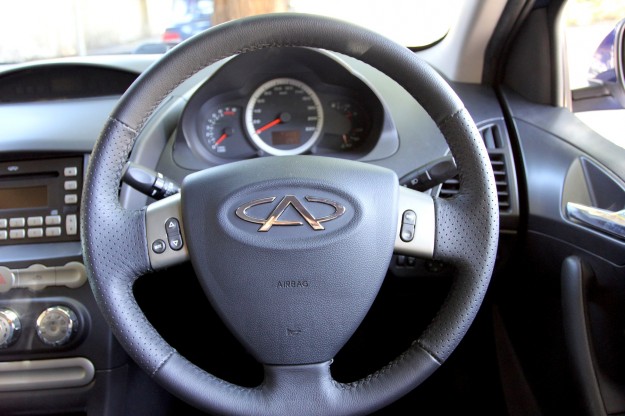
It’s a determined understeerer – pushing at the front early in a corner – but it also grips better than its no-name rubber might suggest and is responsive to a lift of the throttle to tighten its line.
For some buyers, a return to basic values won’t be seen as a bad thing. Technically, the car is about two decades adrift of the small car standard, but then it’s important to remind ourselves that it costs about a third less than similarly sized rivals.
Compared with sub-light-sized price point rivals it actually compares favourably with the likes of the Barina Spark and Suzuki Alto, if not the Mirage and Micra, in every way except fit and finish.
The J3 also does some things better than big-name, more expensive cars. It feels gruntier around the suburbs than a petrol Hyundai i30, offers a better relationship between throttle and clutch than a Kia Cerato Koup, and keeps occupants cooler in summer than a Honda Jazz.
A full 20 million cars were sold in China last year, compared with just one million in Australia. With epic growth seen in the Chinese market, which for years kept its lower-middle classes on scooters, cars like the Chery J3 are shifting the home population into safer, more comfortable four-wheeled transportation in increasing numbers.
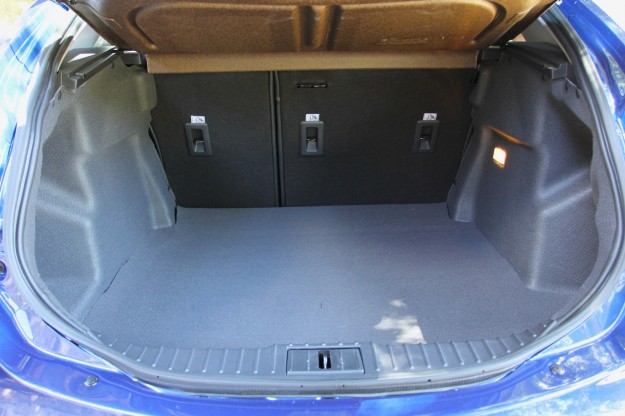
Limited quality and various key unknown factors – crash worthiness, reliability and resale value – means the Chery J3 can’t find a place on our ‘recommended’ list.
But in global terms this is a sort of ‘people’s car’ of China. And just like the original Volkswagen Beetle and Citroen 2CV, it too is endearingly basic.





